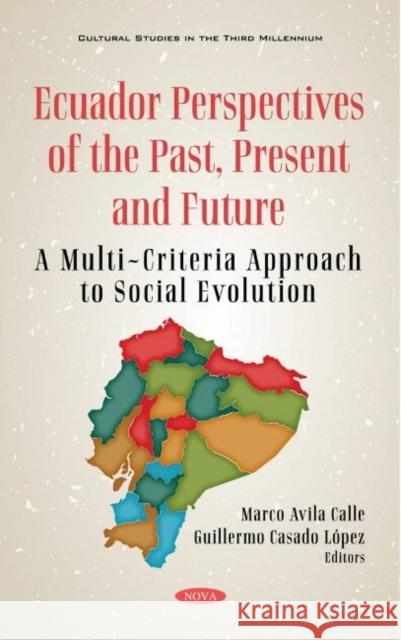Ecuador: Perspectives of the Past, Present and Future: A Multi-Criteria Approach to Social Evolution » książka
Ecuador: Perspectives of the Past, Present and Future: A Multi-Criteria Approach to Social Evolution
ISBN-13: 9781536193732
Ecuador is a diverse and multicultural country which has resisted the historical processes of homogenization and globalization. In it different peoples and ancestral nationalities coexist, as well as the heirs of the colonial process, appearing as strong contrasts in customs, languages and cultural expressions, arising syncretism, miscegenation and fusion. There is a fascinating natural diversity, which, despite being contained in a small fragment of world territory, gives an immeasurable environmental value to the country, America, and the world. However, this cultural and environmental wealth is sometimes overshadowed by phenomena of exclusion, by social gaps, by gender inequality and by environmental degradation. These realities, which affect all of Latin America, have vernacular peculiarities, intrinsic to Ecuador as a country. Within this context, this publication aims to generate an investigative space from different perspectives and disciplines, contributing to the construction of a more inclusive and sustainable Ecuador. Therefore, the philosophy and motivation in which the editorial spirit is inscribed is focused through the concepts of identity, culture, humanism, the environment and interculturality. This work also presents the main results of research carried out by various universities in Ecuador, highlighting the contribution of the research project promoted by the postgraduate program of the Catholic University of Cuenca called "Sustainable Architecture Through Adequate Recycling of Plastic," which has allowed the correct articulation of the themes exposed in this work. We hope that this book, beyond becoming a useful instrument in academia and within research, may have an expansive and positive effect on the inhabitants of Ecuador, especially those most disadvantaged.











